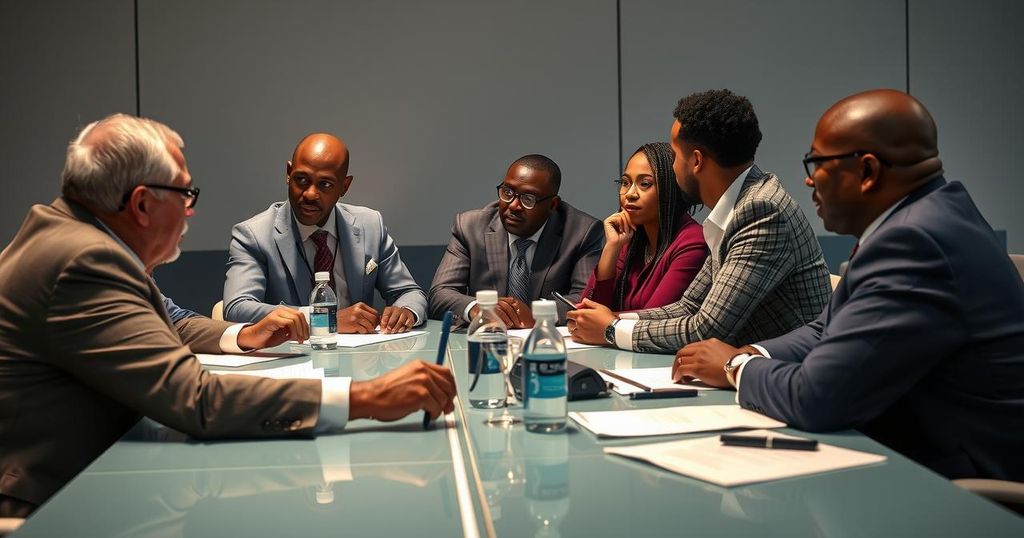South Africa assumes the G20 presidency under President Cyril Ramaphosa, prioritizing climate change, debt relief, and economic transformation. Ramaphosa aims to leverage Africa’s mineral resources for growth, navigate geopolitical tensions, and foster consensus amidst competing global interests.
South Africa has made history by assuming the presidency of the G20, marking the first time an African nation has undertaken this role. President Cyril Ramaphosa has unveiled an ambitious agenda that emphasizes critical areas including climate change, debt alleviation, and economic restructuring. A pivotal element of his strategy is the utilization of essential mineral resources from the African continent—particularly cobalt sourced from the Democratic Republic of the Congo—to catalyze growth and development across Africa. Furthermore, South Africa aims to navigate and reconcile conflicting global interests, particularly in light of geopolitical disputes, such as the ongoing war in Ukraine.
Analysts suggest that Ramaphosa’s historical experience in consensus-building during the formulation of South Africa’s 1996 constitution, along with the successful organization of the 2023 BRICS summit, will be crucial for his leadership of the G20. Nonetheless, his diplomatic capabilities are poised for scrutiny amidst escalating tensions between the United States and China, increased protectionism, and Africa’s quest for fair and equitable policies on the global stage.
The G20, or Group of Twenty, is an international forum that brings together the world’s major economies, representing about 85% of global GDP. The presidency of this influential group rotates among its members, and South Africa’s leadership reflects a significant milestone for African representation on the global economic platform. Ramaphosa’s presidency comes at a critical juncture, as countries navigate complex issues like climate change, economic recovery following the COVID-19 pandemic, and heightened geopolitical tensions that affect global cooperation and stability.
In conclusion, South Africa’s presidency of the G20 under President Cyril Ramaphosa represents an unprecedented opportunity for African nations to influence global agendas. With a focus on sustainable development and economic transformation through strategic resource management, Ramaphosa seeks to unite diverse global interests. However, he will face significant challenges, particularly in managing the ramifications of geopolitical strife, underscoring the importance of skilled diplomacy in achieving consensus among G20 members.
Original Source: iafrica.com






